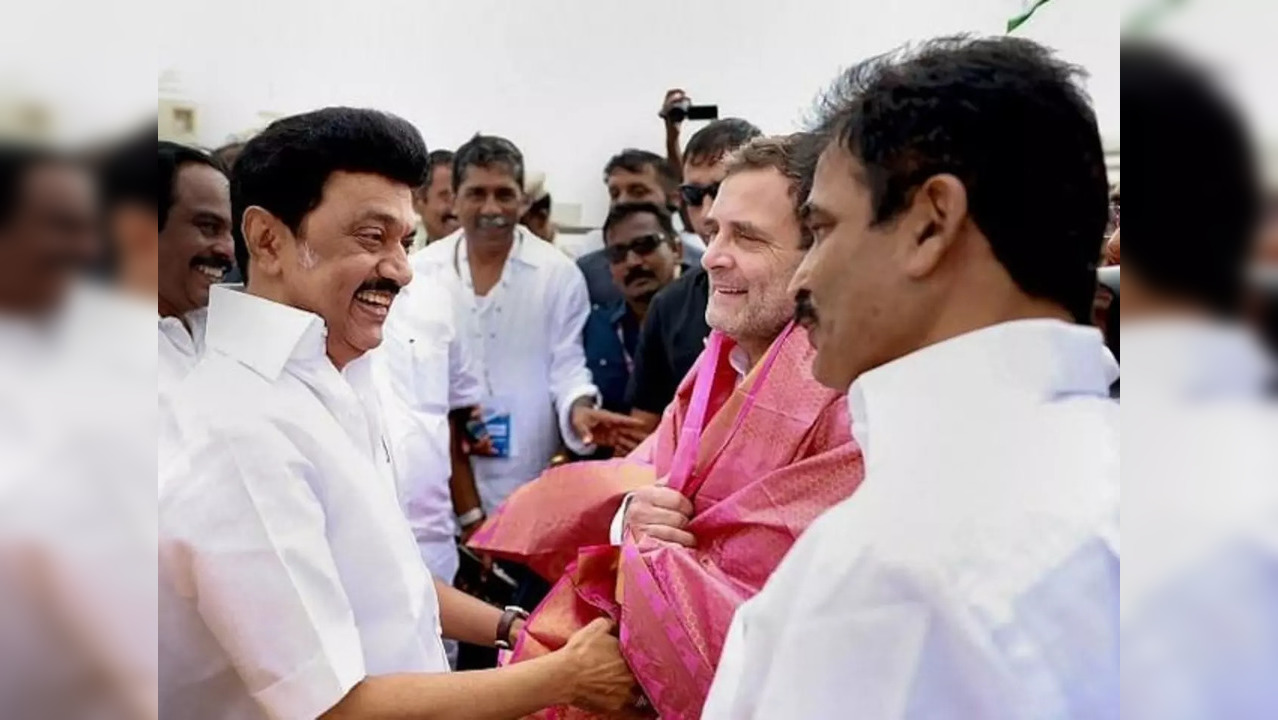Tamil Nadu has been shaken by the tragic loss of 41 lives in a stampede at actor Vijay’s political rally in Karur. The visuals of desperate families, bodies lined up, and survivors in shock should have moved the entire political establishment to one united demand: justice for the victims. Instead, what we see is a carefully orchestrated silence, a dangerous attempt to bury accountability, and a curious lack of outrage from both ruling and opposition benches.
The police, under Chief Minister M.K. Stalin’s DMK government, have filed an FIR against local functionaries of Vijay’s party, the Tamizhaga Vetri Kazhagam (TVK). Strangely, Vijay himself—whose very presence drew the massive crowd—has been spared any legal mention. This is even though in any mass gathering, ultimate responsibility rests with the organizer, more so when the organizer is not a faceless cadre but a matinee idol making his first serious foray into politics.
Why this hesitation? Why this reluctance to probe deeper? The truth is bitter: politics, faith, and opportunism appear to be at play.
A tragedy of this magnitude deserves an impartial investigation. Local police, directly under a ruling party that is already in an electoral alliance with Congress, cannot be expected to carry out a free and fair probe. The case must be handed over to central agencies to ensure neutrality. After all, the loss of 41 innocent lives cannot be reduced to a matter of local law-and-order management. The precedent is clear—stampede cases in other states have been probed by central agencies. Why should Tamil Nadu be different?

Adding to the murkiness is the role of Rahul Gandhi. Days after the incident, Gandhi reportedly reached out to Vijay. Political analysts smell a strategy: a calculated move to shield the actor from political and legal fallout. Was this a gesture of sympathy, or was it a subtle message to state authorities to tread lightly?
Contrast this with Telangana. When a similar stampede occurred during the film premiere of Telugu superstar Allu Arjun, the Congress government there wasted no time in naming him in the FIR. Why this double standard? The answer may lie in political affiliations. Allu Arjun is the nephew of Jana Sena chief Pawan Kalyan, whose party is a BJP ally and part of the NDA. Vijay, on the other hand, could be a useful ally for Congress and DMK in the event of a fractured verdict in Tamil Nadu’s assembly elections.

There is another uncomfortable layer to this saga. Vijay’s full name is Joseph Vijay Chandrasekhar. He is a Christian. So is Rahul Gandhi, despite his carefully cultivated “janeu-dhari Brahmin” image. And while MK Stalin is an atheist by declaration, DMK’s politics have always relied on minority consolidation. Is there a silent bond of faith and political convenience at work here?
To ask this question is not to communalize the tragedy, but to highlight why accountability appears negotiable when certain political and religious interests align. Victims’ families, cutting across caste and community, deserve justice, not political cover-ups.
Even more intriguing is the studied silence of AIADMK and BJP, both in Opposition. Neither has aggressively demanded Vijay’s accountability. Why? The answer could lie in political arithmetic. With Vijay’s party, TVK, entering politics, the possibility of a hung assembly in 2026 cannot be ruled out. AIADMK and BJP perhaps hope that, if cornered, they might need Vijay’s support to form a government.
This cynical calculation explains why even Opposition leaders are avoiding direct attacks on him. It is as if the blood of 41 victims has been reduced to mere electoral currency.
The Karur stampede is not just another unfortunate incident. It is a litmus test of whether India’s political system values human lives above political gains. When FIRs can be selectively drafted, when victims’ families are denied true accountability, when national leaders intervene not to console but to control damage, democracy itself takes a hit.
If the Congress-DMK combine and the state’s Opposition think they can brush this under the carpet, they are mistaken. The demand for a central probe will only grow louder. Justice must not be selective. Responsibility must not be negotiable. And no amount of political silence can erase the fact that 41 families have been torn apart—lives lost at the altar of political ambition.





